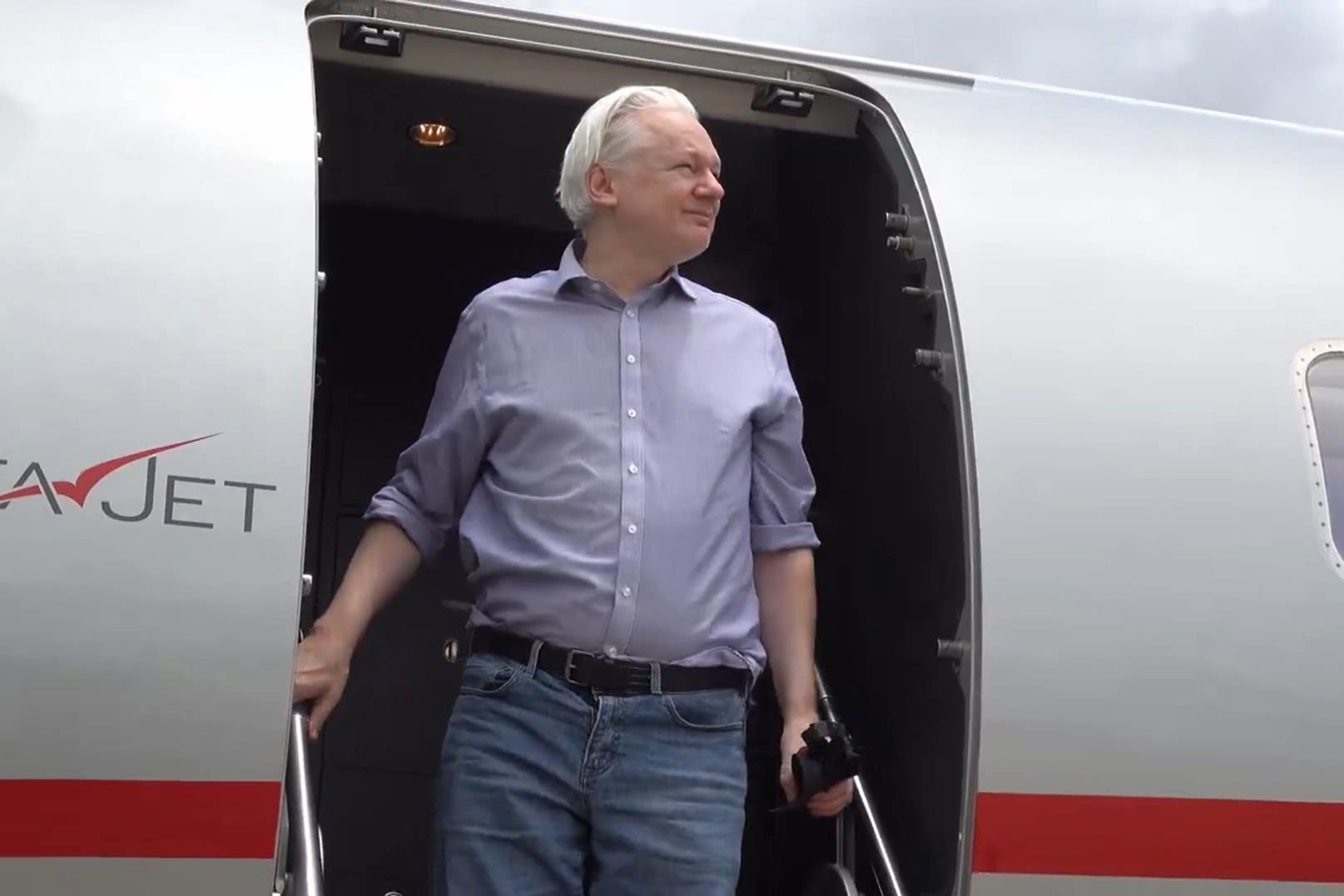I advised Julian Assange’s lawyers – here’s how we beat the US courts
The United States may have shot itself in the foot with its handling of the WikiLeaks founder’s case, writes Eric Lewis, who served as an expert on US law for Assange’s defense team


After a legal battle which has spanned more than a decade, during which time Julian Assange claimed political asylum for seven years in the Ecuadorian embassy in London, and spent five years and two months detained in the harsh Belmarsh Prison while fighting extradition, the WikiLeaks founder has pleaded guilty to a single count of violating the United States Espionage Act. He was sentenced to time already served, and on Wednesday touched down in his home country of Australia to be with his wife and family.
The plea deal which saw Assange walk free was no doubt spurred to completion by the recent granting of a full appeal in England, after two judges sought and failed to receive satisfactory assurances from the United States government that he would be permitted to rely on a defense under the first amendment to the US constitution, and that he would not be prejudiced at trial due to his foreign nationality.
Had the two judges found these assurances satisfactory, he would have been on a plane, in handcuffs, to the Eastern District of Virginia (where the Pentagon and CIA are located) to face up to 175 years in prison under an 18-count indictment, rather than on the private jet that returned him to Australia.
I served as an expert on US law on Assange’s extradition and, while I have no insight into the US government’s legal and policy considerations in finally agreeing to a plea agreement, it was clear that the English courts were rightly concerned with whether Assange would be able to argue for those rights and would not be denied rights he would otherwise be accorded if he were a US rather than a foreign citizen.
The United States government provided this response to the assurances:
“Specifically, if extradited, Assange will have the ability to raise and seek to rely upon at trial (which includes any sentencing hearing) the rights and protections given under the first amendment of the constitution of the United States. A decision as to the applicability of the first amendment is exclusively within the purview of the US courts.”
This was bureaucratic word salad trying to respond to the request through evasion – if not the outright misleading of a foreign court. Of course, any party can raise any point at any time in any proceeding. Any application, whether valid or wholly frivolous, must necessarily be decided by a court. In other words, judges decide issues, not parties.
What the United States government chose not to tell the court is what position it would take in response to the inevitable assertion of first amendment rights by Assange. As the Department of Justice well knows, the prosecution has the right to respond to any motion made by a defendant. The department also knows that it invariably exercises that right, and that its views are influential.
The United States made the tactical decision not to inform the court of its ability to assert a position, nor what position it would take. The United States has asserted publicly that Assange was not a journalist, and that his conduct was not protected. In pursuing this indictment aggressively, it is almost certain it would have taken the position that he had no first amendment rights for this conduct, nor as a foreign citizen.
The Department of Justice has on numerous occasions and in numerous contexts argued that foreigners do not have certain constitutional rights – including first amendment rights – purely by virtue of their being non-citizens. Its ambiguous statement certainly did not suggest that it had changed its usual position and allowed a foreign citizen to assert such a position here.
But instead of saying what its position would be with respect to these issues, the United States government simply did not tell the court, in the hope that its unresponsive assurances might get past the English judges and allow them to fight the assertion of these rights once Assange was sent to the United States.
The United States has also made the further obvious point that US courts decide legal issues, not prosecutors. Yet it also chose not to inform the court that there are mechanisms by which this issue could have been litigated and decided by the District Court before an extradition decision was made.
While the general policy is that a criminal defendant must come personally into the United States to make an argument before the court relating to the indictment, it is not required. The parties could have approached the US court for a definitive ruling prior to extradition. The United States government did not advise the English judges of this option, implying it would have to await Assange’s extradition.
Extradition seeks the co-operation of a foreign sovereign in using its coercive powers in aid of enforcing the criminal laws of another state. Such a request requires utmost good faith and transparency, especially in a case involving core liberties like freedom of expression.
The English court was entitled to ask for assurances that Mr Assange would be treated no differently than an American citizen, and would be allowed to defend himself on the ground that his conduct was protected speech. It was entitled to much better answers than it received, and it acted accordingly. This put the United States in a position where it had limited remaining leverage.
The United States’ actions were an own goal that is quite likely to have contributed to the plea agreement and Assange’s agreement.
Eric Lewis is chair of Lewis Baach Kaufmann Middlemiss, and has served as an expert on US law issues for the Assange defense team in England






Join our commenting forum
Join thought-provoking conversations, follow other Independent readers and see their replies
Comments